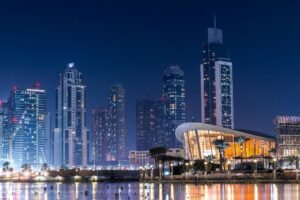Ramadan, the ninth month of the Islamic lunar calendar, is a time of fasting, prayer, reflection, and community for Muslims around the world. In Malaysia, a country renowned for its multicultural and diverse population, Ramadan is a special time of year that blends traditional religious observances with the rich cultural heritage of its people. The month of Ramadan is not only marked by its spiritual significance but also by its vibrant celebrations, unique food traditions, and festive atmosphere. Whether you are a visitor or a local, experiencing Ramadan in Malaysia offers a fascinating glimpse into the country’s deep cultural and religious roots, and is a must-do for those looking to understand the essence of Malaysia’s way of life.
The Significance of Ramadan in Malaysia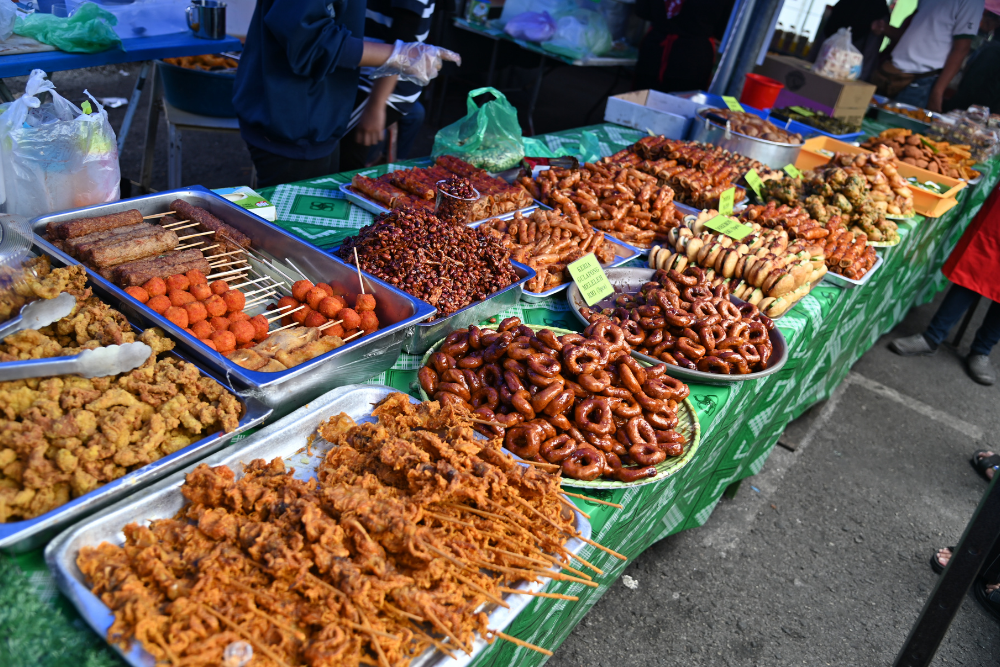
In Malaysia, Islam is the predominant religion, with over 60% of the population being Muslim. During Ramadan, Muslims fast from dawn until sunset as an act of worship, discipline, and empathy for the less fortunate. This month of fasting is followed by prayer, reflection, and a renewed commitment to spiritual growth.
Though Ramadan is primarily observed by Muslims, its impact is felt across the entire country. The non-Muslim population, which includes significant communities of Buddhists, Christians, and Hindus, also takes part in the celebrations, showing respect for the customs and traditions that define this time of year. The unique fusion of Malaysia’s multi-ethnic society creates an atmosphere of shared experiences, where food, culture, and spirituality come together in vibrant and memorable ways.
1. The Ritual of Fasting and the Importance of Iftar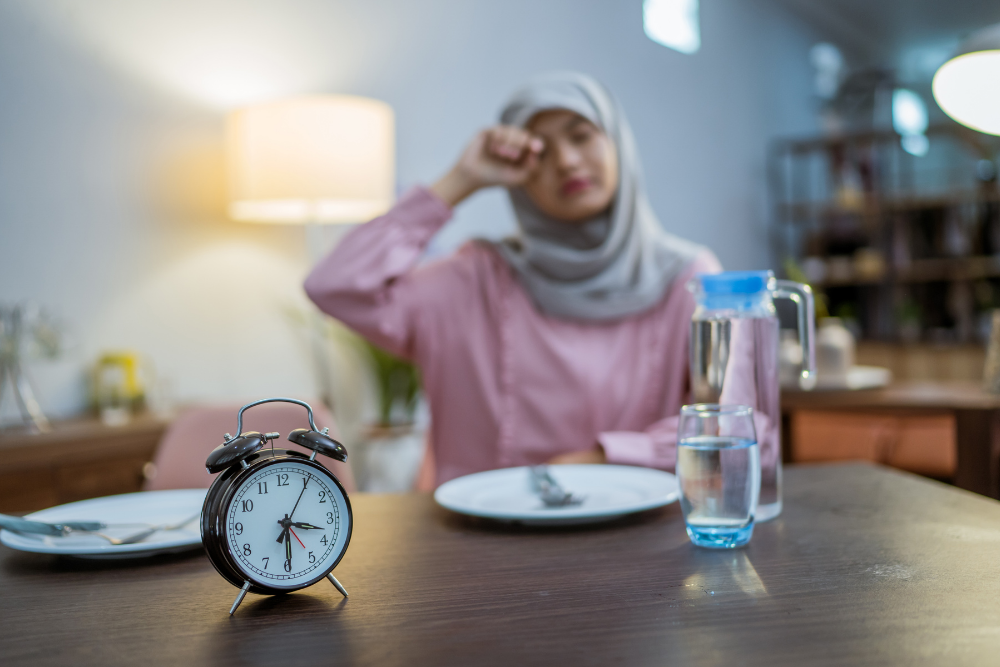
The day’s fast begins with the sehri or sahur, which is the pre-dawn meal taken before the fast begins at sunrise. This meal often includes wholesome, filling foods such as rice, bread, fruits, and yogurt to sustain Muslims throughout the long day of fasting. As the sun sets, the fast is broken with the iftar, a special meal shared with family and friends.
In Malaysia, the tradition of iftar is a lively and communal event. It’s common to see families, friends, and even strangers coming together at homes, mosques, and public places to enjoy a meal after a long day of fasting. In many places, particularly in cities like Kuala Lumpur and Penang, food stalls and markets set up bazaars to cater to the growing crowds, offering an array of delicious foods to break the fast.
2. Ramadan Bazaars: A Feast for the Senses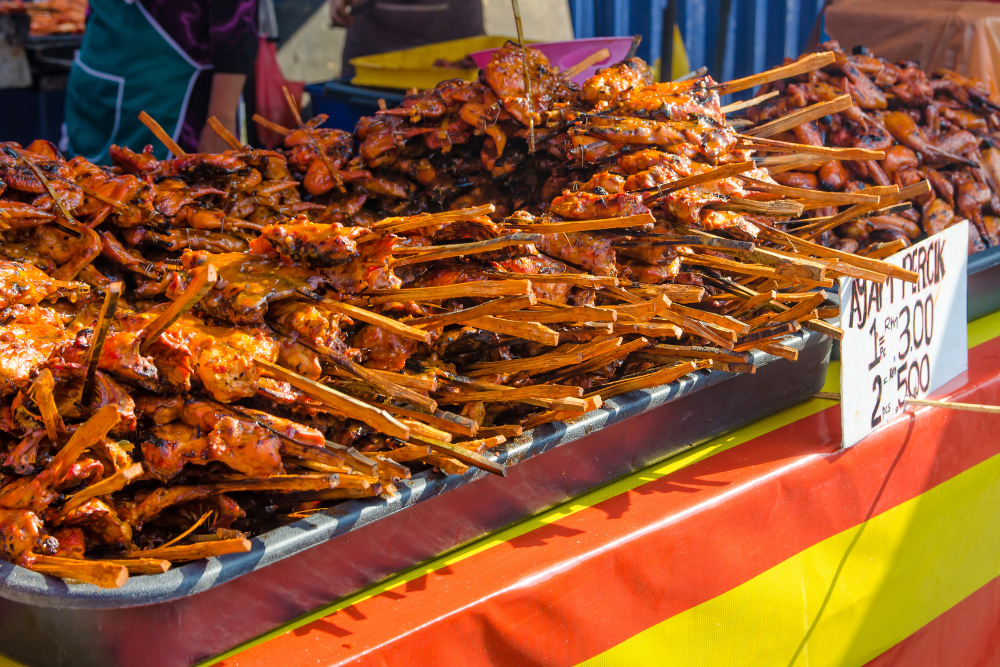
One of the most exciting aspects of Ramadan in Malaysia is the Ramadan bazaars. These temporary markets pop up across the country during the month of fasting, offering an incredible variety of local and traditional foods. Walking through a Ramadan bazaar is an experience in itself, with the enticing aromas of freshly cooked food filling the air, vibrant colors of the various dishes, and the buzz of people shopping for their evening meals.
What You’ll Find at Ramadan Bazaars:
- Nasi Lemak: Often considered Malaysia’s national dish, nasi lemak consists of fragrant coconut rice, served with spicy sambal (chili paste), crunchy fried anchovies, hard-boiled eggs, and a side of cucumber. During Ramadan, many stalls serve different variations of nasi lemak, with added proteins like fried chicken or beef rendang.
- Roti John: A local sandwich made with toasted bread, eggs, minced meat, and a variety of toppings like cheese, mayonnaise, and chili sauce. It’s a satisfying and filling snack, perfect for after a long day of fasting.
- Sate: Grilled skewers of marinated meat (usually chicken or beef) served with a delicious peanut sauce. The savory aroma of sate grilling over an open flame is a signature smell at any Ramadan bazaar.
- Bubur Lambuk: A comforting rice porridge typically made with a mix of meat (such as chicken), spices, and herbs. This dish is often served at mosques as part of charity during Ramadan.
- Kueh: These are traditional Malaysian sweets that come in a wide variety of flavors and textures. Popular during Ramadan are kueh lapis (layered cake), kueh talam (pandan and coconut dessert), and onde-onde (sweet rice balls filled with palm sugar).
Where to Find Ramadan Bazaars:
- Kuala Lumpur: The Taman Tun Dr Ismail and Jalan Masjid India Ramadan bazaars are famous for their large selection of food and are popular among locals and tourists alike.
- Penang: The Ramadhan Bazaar at Padang Brown offers a blend of local Penang specialties alongside traditional Malay dishes.
- Johor Bahru: The Larkin Ramadan Bazaar is one of the largest in the southern region, known for offering an abundance of both local and international cuisines.
3. Special Ramadan Dishes and Sweets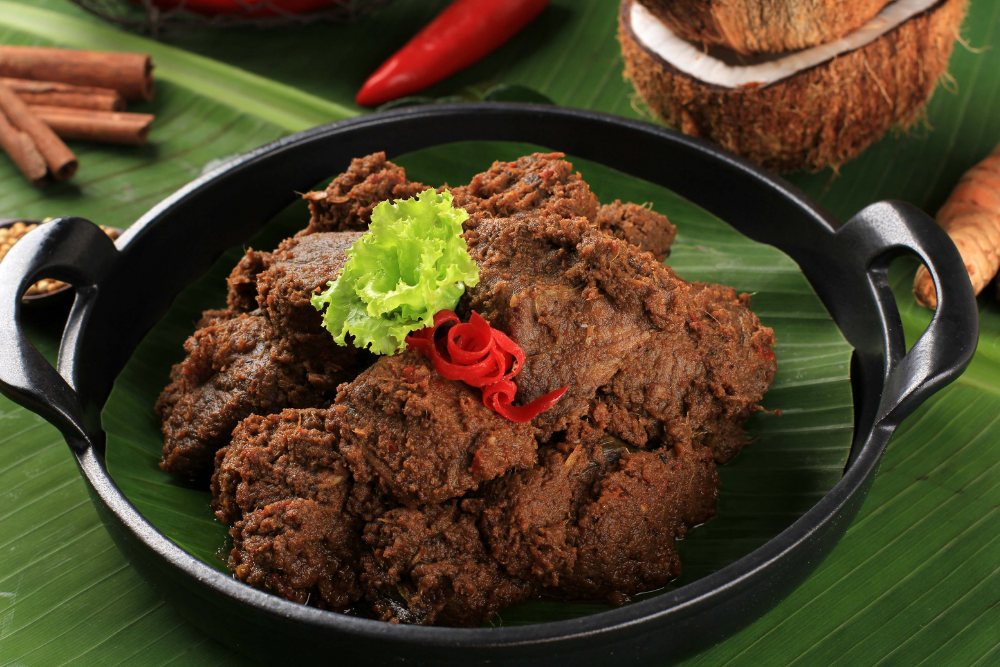
While everyday Malaysian food is already full of flavor and variety, Ramadan brings out special dishes that are reserved for this holy month. The flavors of these dishes reflect Malaysia’s diverse culinary heritage, and they are often made using recipes that have been passed down through generations.
- Rendang: This rich and aromatic dish originates from the Malay Archipelago and is made by slow-cooking meat (typically beef or chicken) with a variety of spices and coconut milk. It is a popular dish during Ramadan, served with rice or bread.
- Ketupat: Ketupat are rice cakes wrapped in palm leaves, usually served during festive occasions like Ramadan and Hari Raya. These little packages of steamed rice are a perfect complement to curries, rendang, and sambal.
- Murtabak: A popular street food during Ramadan, murtabak is a stuffed flatbread filled with minced meat, eggs, onions, and spices. It’s often served with a side of curry or sambal.
- Air Bandung: A refreshing drink made with rose syrup and evaporated milk, air bandung is a sweet, creamy beverage that’s popular for breaking the fast.
- Dadar Gulung: This is a rolled-up crepe filled with sweet coconut filling, commonly served as a snack during Ramadan.
4. The Spirit of Giving: Charity and Community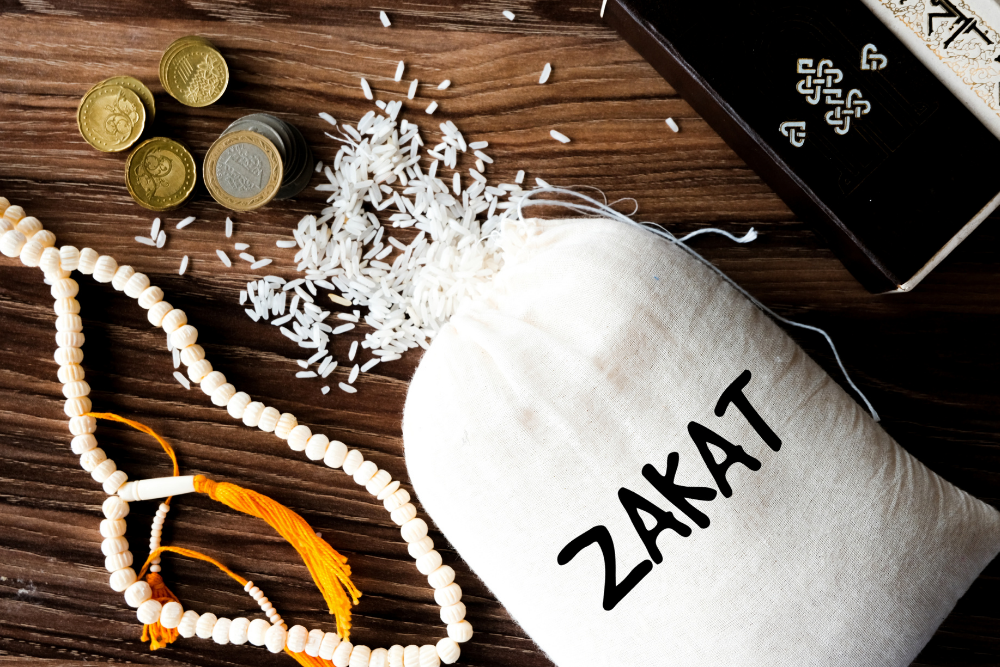
Ramadan is a time for Muslims to not only focus on their spiritual journey but also to give back to the community. Zakat (almsgiving) is one of the five pillars of Islam, and during Ramadan, many Muslims contribute to charity by donating food, money, or other essentials to the less fortunate. It’s a time of reflection on the value of kindness and generosity.
In many parts of Malaysia, mosques and community organizations prepare bubur lambuk (rice porridge) to distribute to the public. This gesture of charity is a beautiful example of how Ramadan in Malaysia is a time of unity and helping those in need.
5. Hari Raya Aidilfitri: The Festivities After Ramadan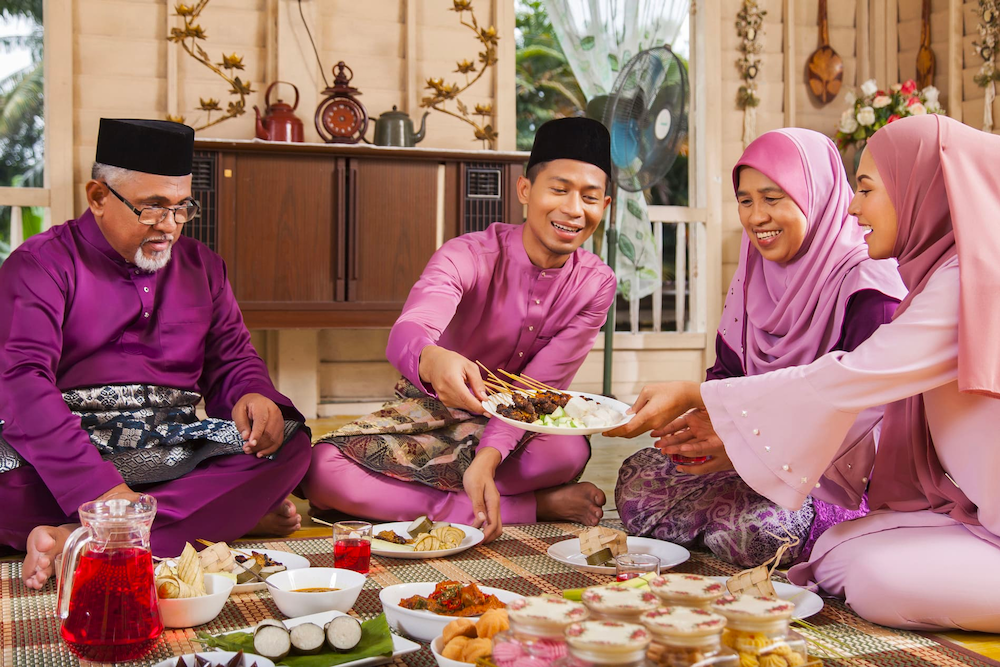
The end of Ramadan is marked by the celebration of Hari Raya Aidilfitri, also known simply as Hari Raya, which is the most important festival in Malaysia for Muslims. The festivities last for a few days, with people wearing their finest clothes, visiting relatives, and indulging in elaborate meals.
During Hari Raya, the food is abundant, and it’s customary to serve a variety of dishes and treats. Families prepare large feasts that include ketupat, rendang, lemang (glutinous rice cooked in bamboo), and various sweets such as kueh raya (traditional cookies).
The atmosphere of Hari Raya is vibrant, with homes decorated with lights and colorful motifs. Visiting open houses is also a popular tradition, where Malaysians of all backgrounds are invited to join in the celebrations and enjoy the food and festivities together.
Conclusion: A Cultural Journey Like No Other
Experiencing Ramadan in Malaysia is a unique and enriching experience. The month is not just about fasting; it’s about coming together as a community, giving thanks, and enjoying the company of loved ones over delicious meals. The blend of diverse cultures and religions in Malaysia during Ramadan creates a sense of unity that is truly special. Whether you are savoring dishes at a bustling Ramadan bazaar, learning about the importance of charity, or experiencing the joyful celebrations of Hari Raya, Malaysia offers an unforgettable Ramadan experience that will stay with you long after the month ends.











